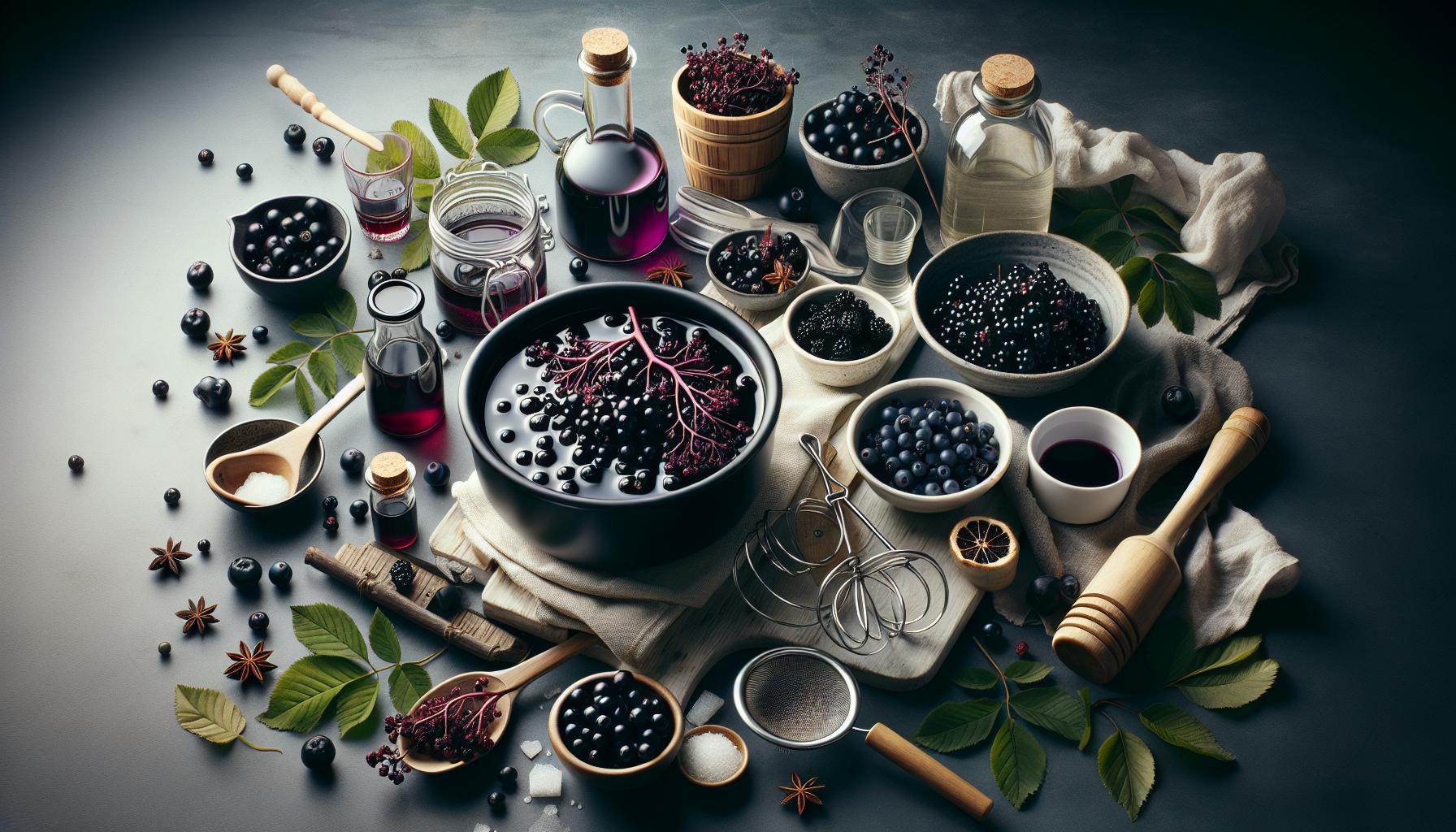We all have moments when we rummage in our fridges or stride purposefully into our kitchens, in dire need of a unique recipe that can turn an ordinary evening into a delightful culinary adventure. Now, here’s a gem of a recipe for you – elderberry port! Yes, a bottle of this enticing potion will not only fill your surroundings with warm, vibrant shades of ruby reds and deep purples but also awe your taste buds with its unique blend of sweet, tart, and somewhat earthy flavors.
Ingredients List
For your very own homemade elderberry port, you will need:
- 2 pounds of ripe elderberries
- 1 1/2 pounds of granulated sugar
- 1/2 teaspoon of pectic enzyme (optional but recommended)
- 1 packet of Port wine yeast
- 1 gallon of distilled water
And that’s it! With these humble ingredients, the magic of winemaking begins.
Instructions
1. Start by stripping your elderberries off their stems. Pluck these small berries carefully, ensuring you leave behind any green or overly ripe berries.
2. Next, crush your elderberries in a large pot until they release their juices and extracted sugar.
3. Add the distilled water and bring this mixture to a gentle simmer, not a boil.
4. Once it’s simmered for around 20 mins, take the pot off the burner and stir in your sugar. After it’s well dissolved, add in the pectic enzyme.
5. Cool this mixture and then add in the Port yeast, stirring gently.
6. Now, cover your elderberry potion and leave it to ferment undisturbed for roughly 5-7 days.
7. After the fermentation period, strain your port and transfer it into bottles, securely fasten the lids/corks, and be prepared for the hardest part – waiting for the wine to mature for at least three months.
Cooking Time & Servings
Crafting your elderberry port takes about 45 minutes, and then it enters the fermentation period which lasts around a week. Patience is the key here! This recipe yields approximately a gallon of homemade port – just the right amount to savor and share with loved ones.
Nutritional Information
Each serving of elderberry port isn’t just packed with great taste, it’s also loaded with various nutrients that contribute to our well-being. Elderberries are known for their high vitamin C content and antioxidant properties. The sugar in the recipe contributes carbohydrates. And as far as calories are concerned, you can expect roughly 150-200 per glass, akin to traditionally made wines.
Tips and Tricks
When making elderberry port, remember that patience is your best friend. Wine-making is as much an art as it is a science, and for the best results, allow your port to mature. If you wish to add a bit of zest to the sweet taste, you could add some lemon or orange peels during simmering. And for a flavor twist, swapping ordinary sugar with brown or golden sugar can bring in a delightful, caramel-like hint to your port.
As this culinary journey comes to a close…
…we hope you’re itching to try making your own elderberry port. We’d love to hear about your experience and the tweaks you made to the recipe to make it your own. Feel free to share your pictures and comments and who knows, your little tweak might become the next elderberry port sensation!
Frequently Asked Questions
– Can I use different types of yeast for this recipe?
Yes, although using Port yeast is recommended for the best flavor, you may use other wine yeasts as well.
– Can I make elderberry port with frozen elderberries?
Yes, you can use frozen elderberries. Just remember to thaw them before you start the recipe.
– What kind of sugar should be used for making elderberry port?
I recommend granulated sugar, but you can experiment with brown or golden sugar for different flavors.
– How long does elderberry port last once bottled?
It can last for several months to a year in the bottle. The flavor improves with time.
– Is it safe for children to consume elderberry port?
No, elderberry port is an alcoholic drink and should not be consumed by anyone under the legal drinking age.
Dive into the interesting world of winemaking with this elderberry port recipe, and get ready for a treat that not only tickles your taste buds but also connects you with an age-old art of winemaking!


